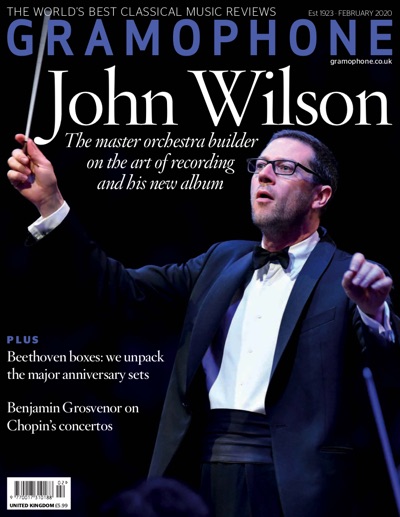Texte paru dans: / Appeared in: Erato 9029538642 |
|
|
Outil de traduction (Très approximatif) |
|
|
Reviewer:
Harriet Smith
Alexandre Tharaud loves a themed disc and ‘Versailles’ is a typically personal exploration of the glories of the French Baroque keyboard tradition. He doesn’t let the fact that some of this music is inherently unpianistic get in his way and in the booklet interview points out that he is part of a long line of French pianists borrowing from the harpsichord oeuvre, and rightly pays generous tribute to Marcelle Meyer in particular. It’s a beautifully programmed disc – so much so that it begs to be heard complete. And the sense that he has lived with this music for a long time is abundantly apparent: readers may recall his discs of Rameau and François Couperin from the early 2000s and there’s some overlap with this new offering, which makes for fascinating comparisons. His sense of characterisation and fine detailing is everywhere apparent, be it the treasurable whispered runs in the de Visée Sarabande, the velvety textures of Duphly’s La Pothouïn or the daringly dreamy L’Aimable by Royer. Even for aficionados of this repertoire there are surprises to be had alongside such favourites as Rameau’s Tambourin (which never feels straitjacketed by its accentuation as it can do in less imaginative performances). He can take us to extremes in successive tracks, from the complete inwardness of d’Anglebert’s Dieu des Enfers Sarabande to Royer’s La marche des Scythes, in which the piano’s inability to create the harpsichord’s haze of overtones as it breaks into virtuoso figuration doesn’t matter, for Tharaud instead conjures atmosphere through his subtle pedalling and the result is the equal of that wondrous harpsichord recording made by Christophe Rousset back in 1991. Tharaud then springs another surprise, with Rameau’s ‘Viens, Hymen’ from Les Indes galantes, for which he is joined by Sabine Devieilhe, whose supple and light soprano is matched by keyboard-playing of great delicacy. He is also joined by the pianist Justin Taylor for an uproarious four-hand arrangement of Rameau’s Les Sauvages by Léon Roques, which makes great play of the piece’s contrasting registers. François Couperin’s Les ombres errantes is another essay in subtlety, though I do wonder if it’s just a little too slow compared to his earlier recording, which flows more naturally. On the other hand, the same composer’s Passacaille is even more striking this time round: here, a slower pace emphasises its grandeur and the sheer novelty of the harmonic pattern on which it is built. The intensity continues through the d’Anglebert organ Fugue, with Duphly’s La de Belombre delightfully puncturing the sombre mood, and sounding positively skittish in Tharaud’s hands. Balbastre’s La Suzanne is another harpsichord showpiece that initially looks very unpromising on the piano but Tharaud, undaunted, brings it gleefully to life, a tour de force of colour and shifting contrasting moods. Tharaud ends with d’Anglebert’s variations on the popular tune Les folies d’Espagne, with the composer exploiting its rhythmic possibilities as much as the ornamental and textural ones. It ends a life-affirming disc in suitably upbeat fashion. |
|




